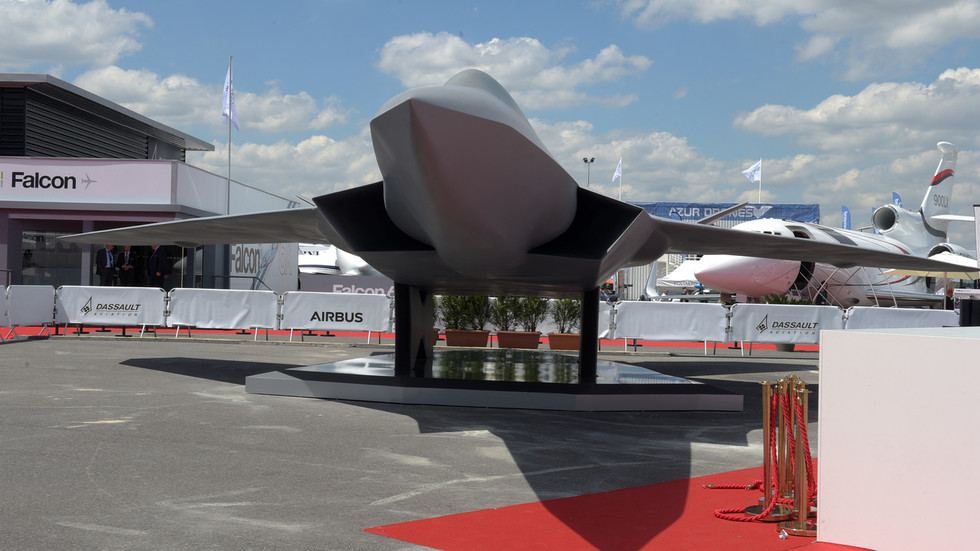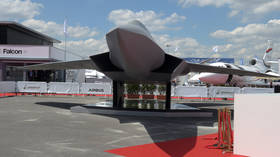
Defense Minister Christine Lambrecht has called the project an example of “excellent cooperation”

FILE PHOTO. The full-scale model of the Systeme de Combat Aerien Futur (SCAF), the Future Combat Air System (FCAS), is presented on the Dassault Aviation’s static display on the first day of the 53rd International Paris Air Show on June 17, 2019 at Le Bourget Airport, near Paris. © ERIC PIERMONT / AFP
Germany, France, and Spain have agreed to move forward with the development of a new European fighter jet, Berlin confirmed on Friday.
The announcement followed a meeting between German Chancellor Olaf Scholz and French President Emmanuel Macron last month, in which the two leaders called for more EU autonomy from the US.
The joint project is known as the Future Air Combat System (FACS). German Defense Minister Christine Lambrecht said in a statement: “The political agreement on FCAS is a great step and – especially in these times – an important sign of the excellent Franco-German-Spanish cooperation.”
She added that the combat system, with an estimated cost of more than €100 billion ($103.4 billion) will help “strengthen Europe’s military capabilities and secure important know-how… for the European industry.”
Germany’s Airbus, which is taking part in the jet’s development along with France’s Dassault and Spain’s Indra, said in an email statement that a “number of formal steps in the respective countries” have yet to be taken before the three companies can get down to work.

The FCAS was conceived in 2017 when Macron and then-Chancellor Angela Merkel agreed to jointly develop a new fighter jet along with several other associated weapons, including drones. According to the plan, the new aircraft should enter service in 2040.
Macron’s administration has long advocated for greater European independence and self-sufficiency in terms of defense, which would allow the continent to be less dependent on the US. In late October, amid reports of increasingly strained bilateral relations, Macron and Scholz held a meeting in Paris in which the two spoke in favor of greater autonomy from the US.
Earlier this month, French Foreign Minister Catherine Colonna also called for the continent to become more independent, adding that the defense goals of all EU nations should be directed towards strengthening “European sovereignty.”




